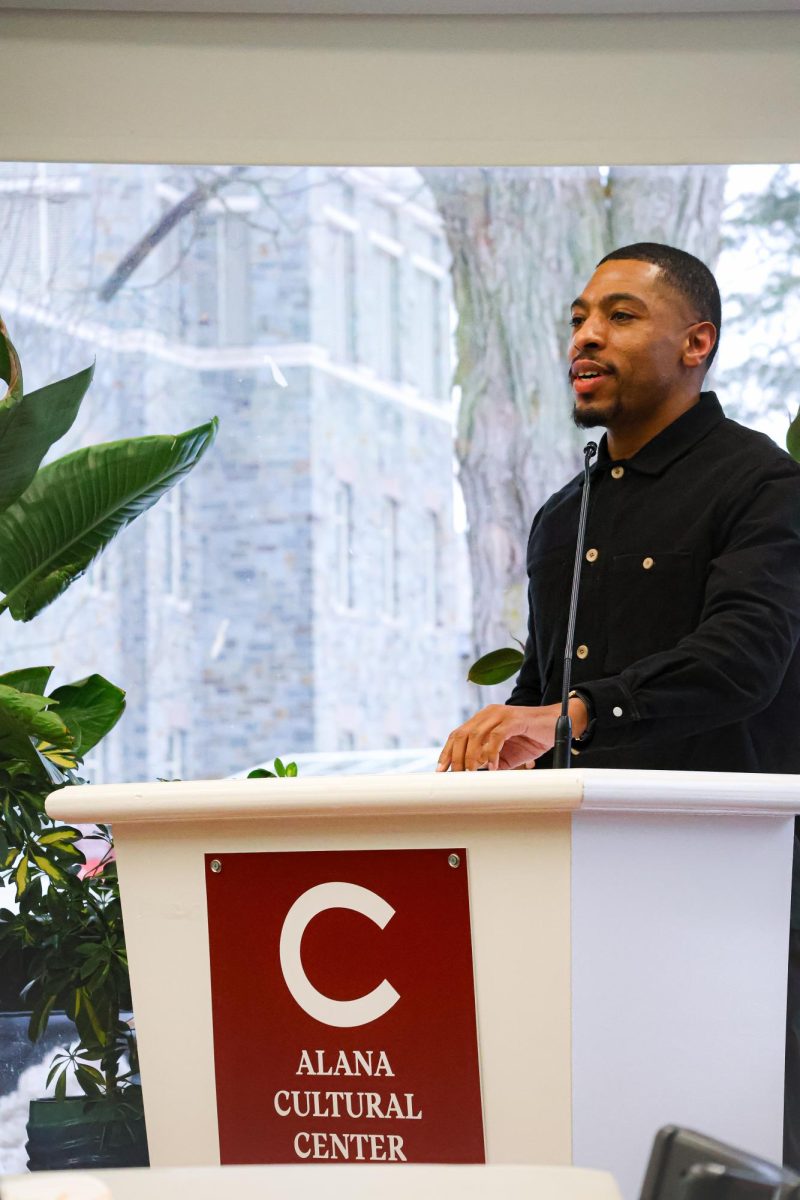Author and Regents Professor of Child Development at the Institute of Child Development at the University of Minnesota Ann S. Masten spoke at the annual Wolk Lecture on Friday, April 26. The event was sponsored by the Michael J. Wolk Heart Foundation, the Colgate University division of natural sciences & mathematics and the Colgate psychological and brain sciences department.
Masten presented her research focusing on resilience, particularly in children and youth overcoming adversity. An important finding from her research showed that growing resilience in young people requires a multi-system perspective and strategy. Masten defined resilience as the ability of a system — meaning a child, family, community, economy, etc. — to adapt successfully through multiple processes to challenges that threaten system function, survival or development.
Masten began her lecture by discussing the COVID-19 pandemic as an example of where resilience was displayed.
“We have been on a rollercoaster of resilience during this time. Most people have had ups and downs. Parents kind of had to surge [their] capacity for taking care of the kids when we had distance learning,” Masten said. “We had to mobilize at multiple levels, and one of the most important was [at the] immune system level. But there are lots of other ways we had to mobilize.”
Masten highlighted that improving resilience in anyone is beneficial when creating a better quality of life following adversity.
“There are a lot of takeaways from the science of resilience about what you can do to try to foster better outcomes,” Masten said.
According to Masten, there are three kinds of questions people try to ask when studying resilience: What challenges or threats can be studied? What fosters adaptive success? How is the person doing?
Masten found that executive functioning skills are critically important to harness when increasing resilience in children and youth, particularly because those groups are malleable. Specifically, improving executive functioning skills is key for success in school.
Matsen collaborated with the Minneapolis public school system and found that there is a significant correlation between risk and test scores and academic achievement.
“It’s five years of data, but it spans from third to eighth grade. The kids got the same test of achievement every year. This is looking at their scores on a measure of reading achievement that is designed to measure growth and improvement in reading,” Masten said. “There are four groups we divided them in. The bottom group are kids who experience homelessness at any time during this window; their achievement is extremely low on average.”
In order to combat this, Masten explained that one of the best methods is good quality parenting. Good quality parenting can help children’s development in high-risk environments and buffer impacts from threats.
“Parenting is a skill that you can learn and improve,” Masten said. “Parenting quality and sensitive parenting is one of the best buffers and protectors for child development in these high risk populations.”
First-year Lauren Walker was engaged by the methods of studying resilience that were discussed in Masten’s lecture.
“I was glad I went to the event. I wasn’t sure what the talk would be about at first, but I found it super interesting as [Masten] went more in depth,” Walker said. “Something I found the most interesting was probably the amount of time and consideration that went into picking all of the risk and protective factors in the [studies that Masten and other researchers] were conducting.”
First year August Haston found the continuing effects of the COVID-19 pandemic in educational settings both enlightening and concerning.
“The lecture was incredibly interesting, as the consequences of the [COVID-19] pandemic have continued to reverberate through educational development,” Haston said. “Whether it be regarding socialization or executive function, we can’t know the consequences until more time has passed.”
The study of resiliency has changed the landscape of practices such as clinical psychology, counseling and social sciences, according to Masten. As the field of research continues to develop, Masten anticipates more changes in the future.














